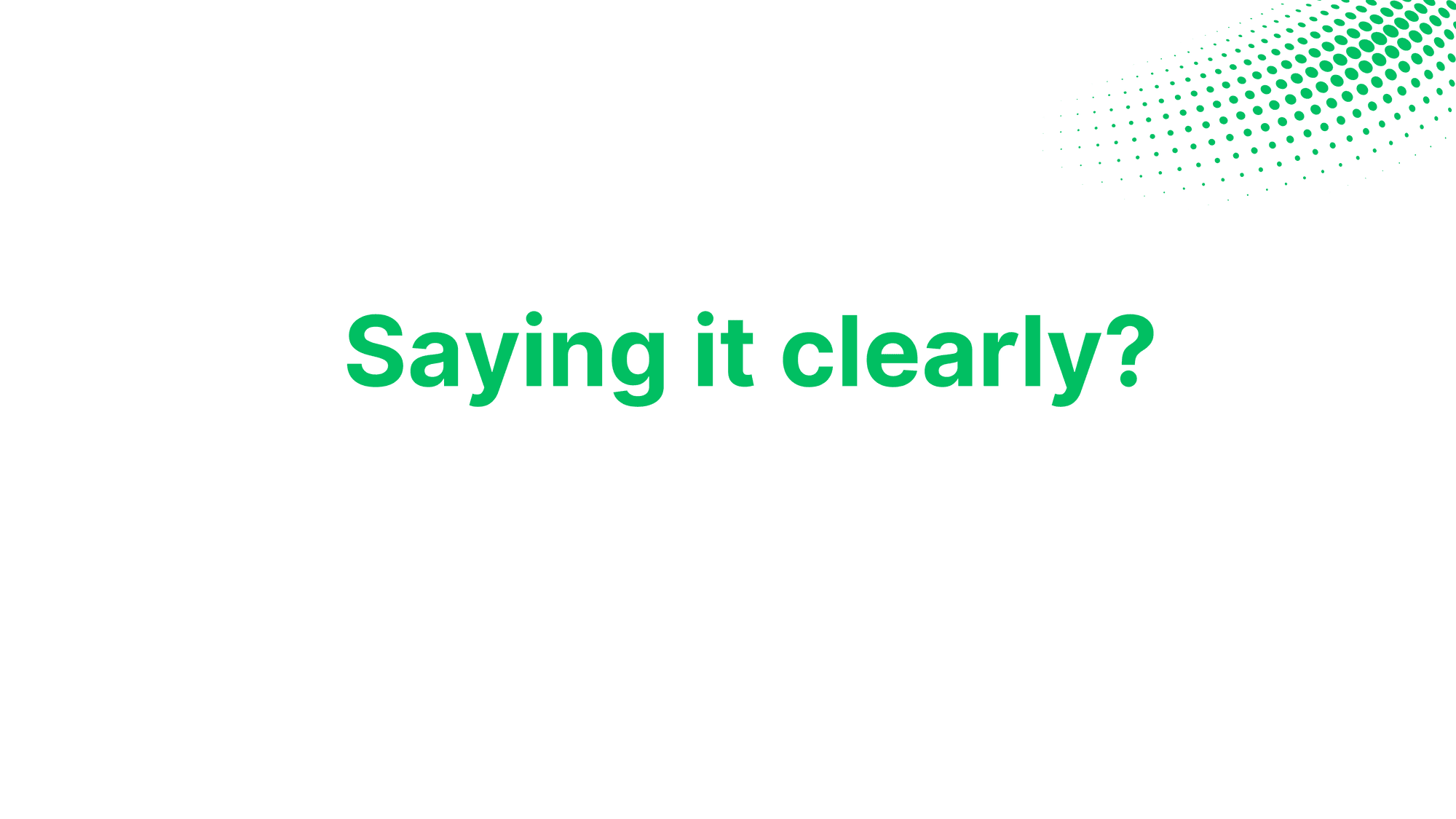Spottable Blogs
Insights on what's changing recruiting forever

10 smart sounding words with fuzzy thinking
We all nod when someone calls a plan “strategic” or a product “innovative.” They sound smart, so we let them slide. But here’s the catch: using these words without clarity doesn’t just confuse others - it can quietly erode trust. When you lean on buzzwords, you signal vagueness, not insight. The real professionals cut through the fluff. The question is - do you? BuzzwordSay This InsteadStrategic“This supports our 6-month growth goal by doing X.”Innovative“We automated X, cutting time by 40%—n

AI Interviewers vs Human Panels
Every few decades, a part of human infrastructure quietly breaks and gets rebuilt by technology. It happens slowly at first. The old way starts to feel a bit creaky. Then someone builds something new. It starts out worse, clunky, even ridiculous. And then, almost imperceptibly, it becomes better. Eventually, it becomes obvious that the old way isn’t just outdated. It’s over. This is happening in hiring right now. Specifically, in the way we evaluate people. Until very recently, the hiring pane

The Hidden Complexity of LLMs in Hiring
Hiring may seem like a simple act - evaluate a candidate, match them to a role, and extend an offer. But underneath this human-led process is a set of decisions that are remarkably hard to automate. We’re not just matching resumes to job descriptions; we’re asking a fundamentally human question: Who can I trust to build or sell? At Spottable, we’re building AI agents that don’t just read or listen - they observe, infer, simulate, and collaborate. These are not passive systems generating plausib

Hiring Is All About Capturing 2 Signals
The biggest illusion in hiring is that it’s about resumes, interviews, or even skills. It’s not. It never really was. Hiring is about trust - and trust emerges from two fundamental signals. I like to call them the explicit signal and the implicit signal. Every hire that’s ever happened - whether through a well-run process or pure chaos - relied on some mix of these two signals. The only difference is whether those signals were strong or weak, deliberate or accidental. Understanding them is

The Interview Illusion
Origins We didn't always hire like this. In the industrial age, work was visible - on factory floors, in physical outputs, in repetition. You didn't interview a blacksmith or a machinist. You watched them work. Judgment came from evidence. Then came the knowledge economy. Work became abstract. So we built rituals to simulate judgment. Enter the interview. A conversation. A guess. A confidence test dressed up as evaluation. We started hiring for how people speak about work, not how they do it.

See Them Perform, Feel Them Fit In
The old way of hiring is collapsing. We built decades of infrastructure on top of a flawed assumption: that a 30-minute conversation can predict someone’s long-term impact. It can’t. Yet, most companies still hire this way - asking rehearsed questions, taking guesses based on resumes, and hoping for a good outcome. This is going to change fast. Not slowly. Not incrementally. Fast. The next evolution of hiring is already underway. It looks like this: See them perform. Feel them fit in. Then h

Are Humans Bad at Hiring?
If you’re being honest, you probably know this already: humans are bad at hiring. Not just occasionally, but systematically, repeatedly, and sometimes even proudly. Despite decades of practice, billion-dollar HR software, psychometric tests, interview panels, and gut-feel “culture fit” instincts, we still routinely make the wrong bets on people. I have not met anyone in my circle who has not made a hiring mistake! The average interview has about the same predictive power as a coin flip. The be
Signals For decades, we've relied on proxies. Resumes. Referrals. Polished interviews. These were our best guesses about someone’s potential. A list of experiences, a few references, a good chat - that was enough to make a six-figure bet. But the reality is, proxies are bad predictors. Talking about work isn’t the same as doing the work. Yet most companies still base hiring decisions on how confidently someone talks in a 45-minute Zoom call. We ask for stories, anecdotes, STAR frameworks - al

Hiring should be Interview-Free
Interviews are a 100-year-old ritual. 2 strangers, 30 minutes, 20 rehearsed questions. Both pretending to be someone they’re not. And we call that hiring? The most high-stakes decision in a company - who to trust with your work - is made in the least reliable way. Gut feel. Culture fit. Vibes. Meanwhile, real talent gets passed over. Good interviews reward: • Confidence • Charisma • Conformity But the best hires often have: • Grit • Curiosity • Quiet excellence We're filtering out the real

The next good recruiting ...
The next good search is NO SEARCH (google → chatgpt) The next good programming is NO PROGRAMMING (vscode → cursor) The next good driving is NO DRIVING (drivers → waymo) The next good __ (so many things) would truly be transformed by AI Agents. The next good recruiting wouldn't just be faster or more automated. It's a complete inversion of the traditional process. Let's dive into history a bit The journey of recruiting has mirrored the evolution of economy itself: * Agrarian Economy: Skil
Get deeper Insights on how autonomous agents are changing recruiting forever
